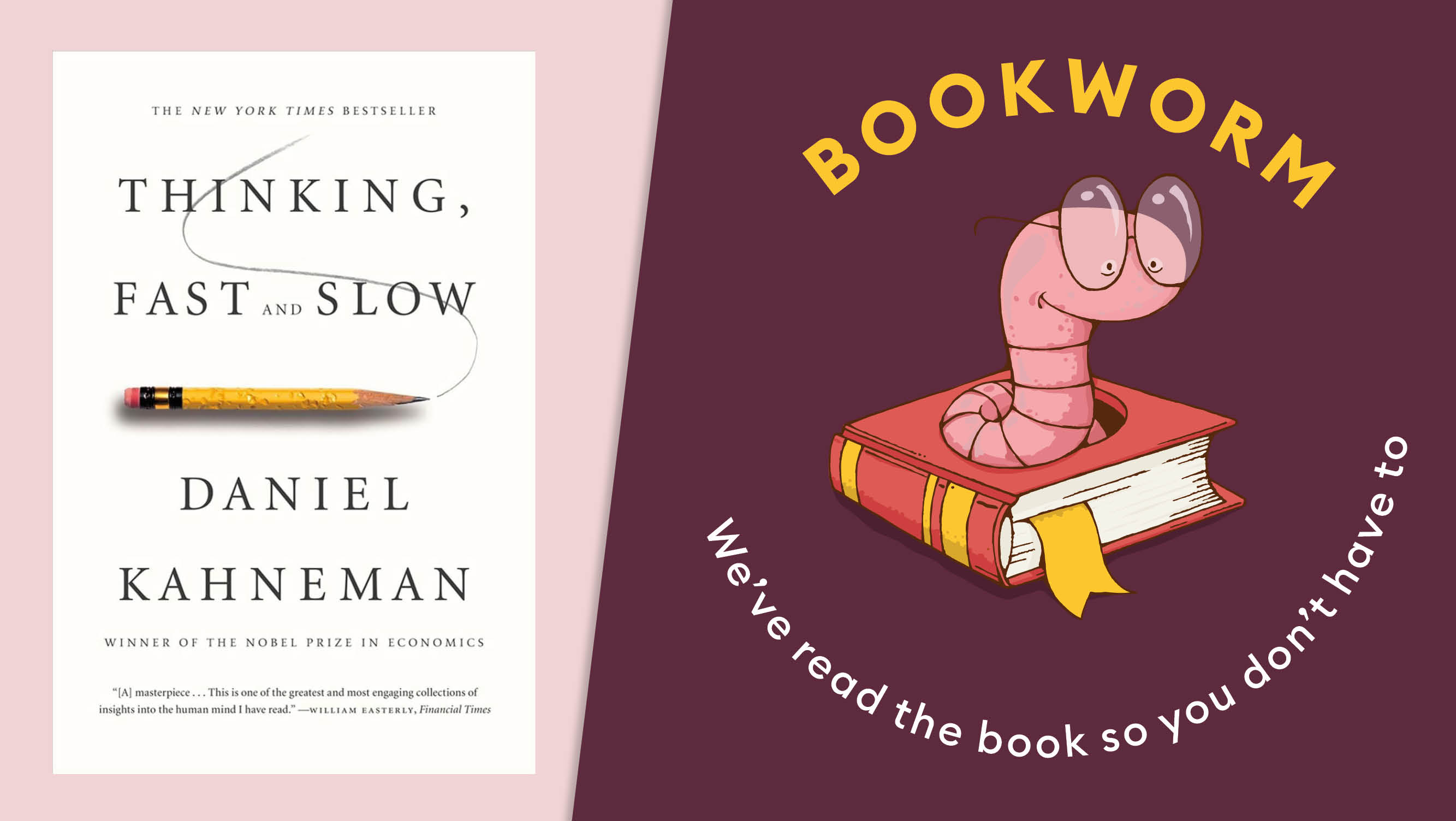Daniel Kahneman explains how the two systems in our brains are constantly fighting over control of our behaviour and actions – and what this means for us.
What does this book explore?
Thinking, Fast and Slow is a groundbreaking publication that was the first to introduce many of the scientific phenomena that business and psychology books so readily bandy around today.
It was written by Nobel-prize winning Daniel Kahneman, an Israeli–American psychologist and economist, who is world-famous for his research on the psychology of decision-making and his work in behavioural economics (and it's an intense, detailed and lengthy read).
Where should we begin?
Simply put, we (people) use cognitive systems for thinking. “System 1” works effortlessly, and quickly makes judgements based on familiarity. “System 2” is more methodical, requiring intense effort and focus. The two systems do not always interact smoothly.
Why not?
We are complicated, emotional beings. We all tend to struggle with the same strange obstacles to rational thought; plus, we each have our own individual experiences which throw another set of hurdles into the mix.
It’s amazing we’ve made it this far, isn’t it?
Yes and no. While our brains do struggle to keep decision-making rational, the cause for much of the brain’s seemingly flawed approach is, at core, survival. Most of the time, our brains are just trying to preserve energy, and simplify reality to make the correct course of action clearer.
What does ‘simplify reality’ mean?
The brain uses many tactics to reduce the amount of information it has to process at any given time so that more cognitive space is available for the task in hand, and to preserve effort that might be needed later. These tactics aren’t inherently bad, but they do create problems.
Can you give me an example?
I can give you two:
1. The halo effect. If we talk to someone for five minutes at a conference and find them pleasant company, we tend to apply a ‘halo effect’, assuming that they are probably clever, charitable and motivated, as well as pleasant company, even though we have no evidence to support the idea.
2. Mis-filling. Our brains will fill in the gaps left by missing information using whatever else it can see. Imagine a chalkboard outside a restaurant. It’s raining and the text is partially washed away, leaving just the letters ‘SO_P’. Our minds tell us it says ‘SOUP’. If exactly the same board appeared outside a fancy beauty store, our minds would see and hear ‘SOAP’.
What’s wrong with saving time and energy if our brains mostly get it right?
Unfortunately, we don’t know when we are right and when we are wrong. We fall foul to our own biases – telling ourselves we are right by looking for examples that confirm our assumptions. This pattern, known as confirmation bias, perpetuates inaccuracies and unfairnesses, and can cost us, and others, dearly.
So, these issues don't just affect us but society as a whole?
Funny you should say that… Another common error explored in this book is that we generally overestimate the importance of our experiences.
For example, when asked, most people think it’s more likely that they’ll die in a random accident than of a stroke, simply because we hear about random accidents in the media much more often than we hear of people dying of a stroke. (In reality, you are much much more likely to be a stroke victim than to make the papers as the casualty of a bizarre and deadly caper.)
I’m not sure how I feel about that. What other tricks do our brains play on us?
We can’t trust our memories. We all suffer from ‘hindsight bias’, where we subconsciously change how we remember past events following receipt of new information. Thinking that a holiday was much more successful than it really was, just because everyone is smiling in the photographs, for example.
We also overemphasise how we felt at the end of an event and tend to apply that feeling to the whole period, even if the experience was actually a bit of a rollercoaster.
Why are memories important for decision-making?
We use our past experiences to guide our future decisions. If we don’t accurately recount our experience as we found it at the time, we’ll likely make choices that will disappoint us or frustrate our progress.
What about simple, numerical decisions? Surely we can make those reliably?
Surprise surprise, no. Even when presented with two options that net out in exactly the same way, our choice will be dictated by the way in which the options are presented. This is known as ‘loss aversion’, and it denotes that we care much more about losing a tenner than we do about gaining one.
How can we use these insights to help ourselves and others?
Kahneman’s identification of these problematic systems disproves economic theories that say that people act rationally. It is therefore undeniable that people need help to make better judgements in their financial and life choices, and to exploit these vulnerabilities would be unethical.
What am I most likely to say after reading this book?
“Is there no beginning to my talents?”
What am I least likely to say after reading this book?
“I am a lean, mean thinking machine.”
















